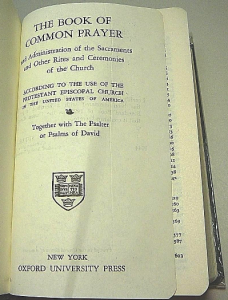 Lenten Journal, Day 36
Lenten Journal, Day 36
Labhraím Gaeilge!
I really wish that were true (it means “I speak Irish”). I don’t. I study Irish. I forget Irish. I study it again.
That is how I spent today; using Duolingo and a free online course from Dublin City University, I have spent the day refreshing my memory of the Irish language, recalling things I learned a decade ago at a school in the Connemara Gaeltacht north and west of Galway City.
Irish is just one of the languages I have studied. I took Spanish in grades 5 through 8 in the Los Angeles city schools. I studied Latin throughout high school. I took Italian in an immersion course in Florence in 1969 and then French in a longer immersion course in Paris in 1973. I cannot speak, read, or write in any of these languages, although I could back in the day.
The problem with language is “use it or lose it.” The brain, at least my brain, seems to say, “I have need of this memory which is not being used. I will over-write this area with something else.” And so it does and the language disappears. Not entirely, however. In 2000 when I chaperoned the Kansas City Youth Symphony on its summer tour of northern Italy, some the Italian came back and I was at least able to chat with baristas, pharmacists, and hotel clerks when required.
The language of spirituality is like that, too. One can very easily get out of the habit and practice of prayer and worship, and when one does, the language of that activity fades away. That’s one of the attractive features of Anglicanism. The cadences of the Prayer Book, whether “traditional” or “contemporary” versions, stick in memory. Some would say, and I would probably agree, that the older language is more rhythmic and musical and therefor stays in memory longer. I still remember the Prayer of Humble Access even though I haven’t said in decades: “We do not presume to come to this thy Table, O merciful Lord…”[1]
The Prayer Book is a primer on prayer. When one is in the daily and weekly habit of reciting its liturgies, one is able to form prayer to those patterns; one has learned and not forgotten the language of spirituality. Stop that daily and weekly practice, however, and facility with that language fades. And when it fades, the spirituality which speaks through it fades as well.
Since retiring from active parish ministry, it has been hard to maintain those habits. Evelyn and I have skipped church more Sundays than I would like to admit, and it was easy to do so. I have stopped regularly praying the Daily Office; I probably remember to do either Morning or Evening Prayer three times a week, rather than the twice daily pattern I was living before. The language of spirituality is in danger of fading.
Retirement gives me the opportunity to take up again the daily study of Irish, but it tempts me with abandoning the daily study of prayer. I need to do both!
====================
Notes:
Click on footnote numbers to link back to associated text.
[1] We do not presume to come to this thy Table, O merciful Lord, trusting in our own righteousness, but in thy manifold and great mercies. We are not worthy so much as to gather up the crumbs under thy Table. But thou art the same Lord, whose property is always to have mercy: Grant us therefore, gracious Lord, so to eat the flesh of thy dear Son Jesus Christ, and to drink his blood, that our sinful bodies may be made clean by his Body, and our souls washed through his most precious Blood, and that we may evermore dwell in him, and he in us. Amen. (Episcopal Church, Book of Common Prayer 1928)



Leave a Reply